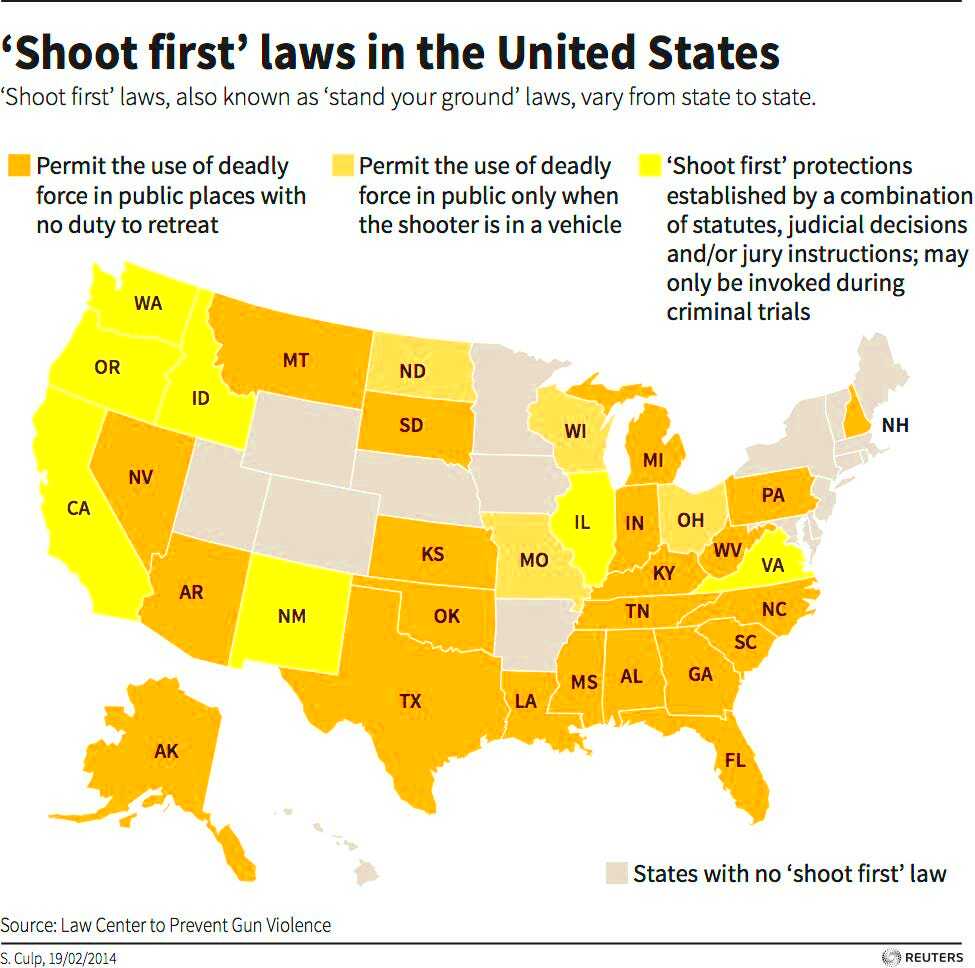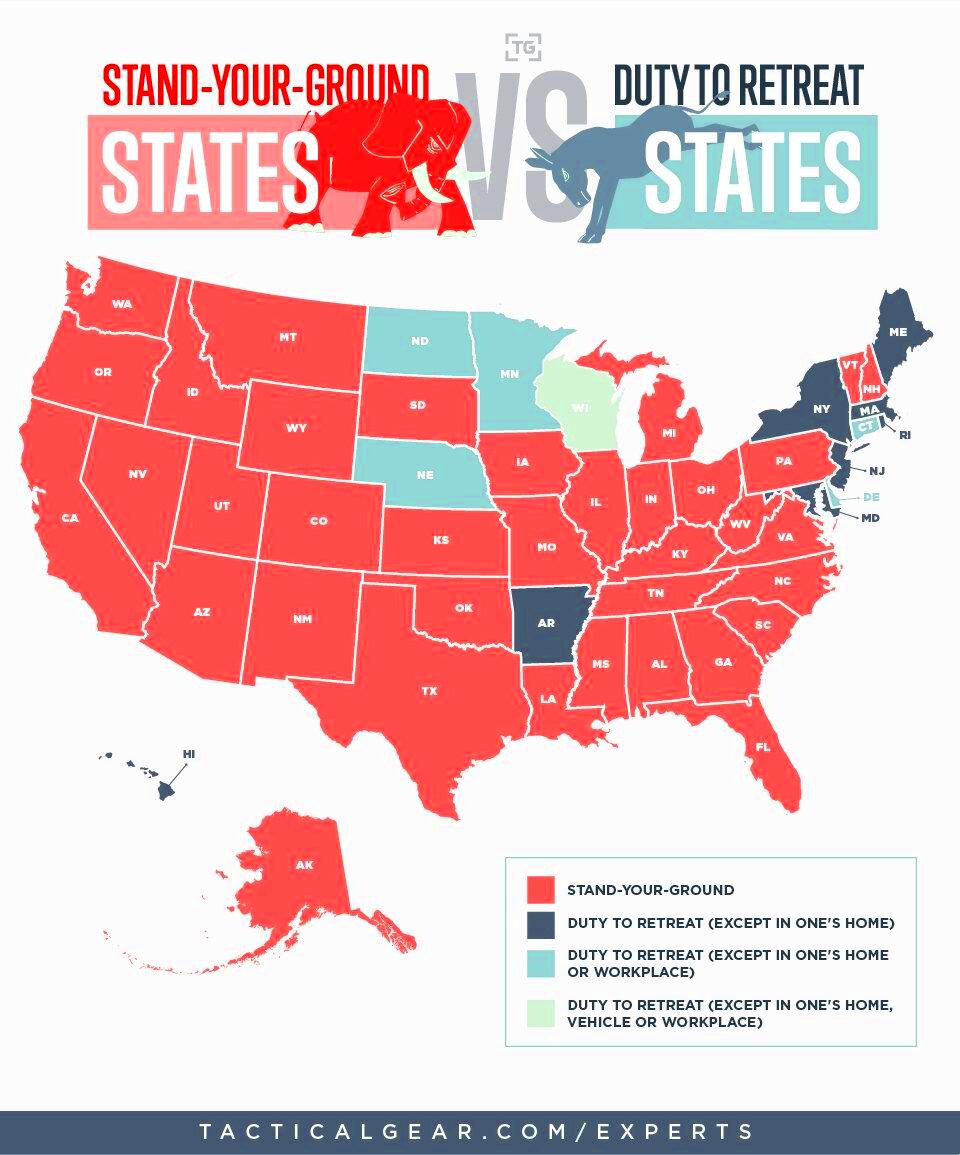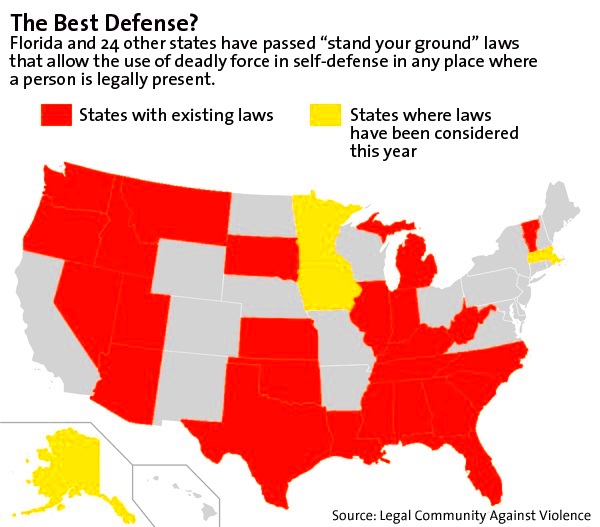What You Need to Know About Stand Your Ground Law in Arizona
Arizona’s Stand Your Ground law is a legal principle that allows individuals to defend themselves without retreating when they face a legitimate threat. This law is part of a broader framework of self-defense laws in the state, providing protection for those who act in defense of their life or property. In Arizona, if you are attacked, you have the right to use force, including deadly force, if it’s necessary to prevent serious harm to yourself or others.
Understanding the Basics of Self-Defense Laws

Self-defense laws in Arizona are designed to protect individuals who use reasonable force in response to a threat. The key idea behind these laws is that everyone has the right to protect themselves from harm. In Arizona, self-defense is classified into several categories:
- Justifiable Use of Force: When a person reasonably believes they are in imminent danger, they can use force to protect themselves.
- Use of Deadly Force: This is allowed when a person reasonably believes that their life or the life of someone else is at risk.
- Defense of Property: Arizona law also allows the use of force to prevent theft or damage to property under certain conditions.
The law requires that the force used must be proportional to the threat faced. This means that deadly force cannot be used in situations where non-lethal force would have been enough to stop the threat.
Key Differences Between Stand Your Ground and Duty to Retreat

The primary distinction between “Stand Your Ground” and “Duty to Retreat” lies in how the law views a person’s obligation to avoid conflict before using force. In “Duty to Retreat” states, individuals are required to attempt to flee from a threatening situation before resorting to force. If escape is reasonably possible, the law mandates retreat to avoid harm.
On the other hand, Arizona’s “Stand Your Ground” law removes this obligation. Under this law:
- No Duty to Retreat: You are not required to flee even if it’s possible. You can stand your ground and defend yourself if you feel threatened.
- Immediate Use of Force: If you reasonably believe that you or another person is in danger, you can use force, including deadly force, without needing to retreat.
- Public and Private Spaces: The law applies in public places as well as your home, making it broader than the traditional “castle doctrine” which only applies to one’s residence.
These differences are important because they shape how individuals can legally respond in dangerous situations. Arizona’s approach emphasizes a person’s right to defend themselves without the pressure to first seek escape.
How Arizona’s Stand Your Ground Law Works

Arizona’s Stand Your Ground law allows individuals to defend themselves without the obligation to retreat from a threat, regardless of where they are. The law permits the use of force, including deadly force, if you reasonably believe that it’s necessary to prevent death, serious injury, or the commission of a violent crime. This self-defense rule applies in both private and public settings, so long as the person is in a place where they are legally allowed to be.
The way the law works is based on the idea of reasonable belief. If you feel you are in immediate danger, you do not have to try to escape the situation before defending yourself. However, your response must be proportional to the threat. For example:
- Non-deadly force: If someone is threatening you with a punch, you can use enough force to stop them but not lethal force.
- Deadly force: If the threat involves serious harm or a deadly weapon, like a gun, you are allowed to use lethal force in response.
It’s crucial to remember that this law doesn’t provide unlimited protection. The force you use must be justified based on the situation. Simply being frightened or nervous isn’t enough to warrant self-defense under the law.
Situations Where the Law Applies
Arizona’s Stand Your Ground law can apply in various situations where a person faces a serious threat. Here are some common scenarios where the law comes into play:
- Home Invasion: If someone breaks into your home, you have the right to use force to defend yourself and your family without retreating.
- Public Spaces: If you are in a park, street, or any other public area and are threatened with serious harm, the law allows you to stand your ground and use force to protect yourself.
- Carjacking: If someone tries to forcibly take your vehicle while you’re inside, you can use force, including deadly force, to defend yourself.
- Defending Others: If another person, such as a family member or even a stranger, is threatened, you can intervene and use force on their behalf.
However, not all situations are covered by this law. If you are the aggressor or provoke the altercation, the protection under the Stand Your Ground law may not apply. Additionally, using excessive force in minor conflicts can still result in legal consequences.
Legal Protections and Limitations for Defendants
Arizona’s Stand Your Ground law provides significant legal protection for individuals who act in self-defense, but there are still limitations to these protections. If you find yourself using force in a threatening situation, here’s what you should know:
- Legal Presumption: Arizona law presumes that if you are in your home or vehicle and someone breaks in, your use of force is justified. This presumption gives you a strong legal defense in these scenarios.
- Burden of Proof: In a criminal case, the burden is on the prosecution to prove that your use of force was not justified. This is a high standard that gives defendants a better chance of acquittal if they were acting in self-defense.
- Immunity from Civil Lawsuits: In some cases, if you acted in self-defense under the Stand Your Ground law, you may be immune from civil lawsuits. This means the person you defended yourself against, or their family, may not be able to sue you for damages.
While the law provides broad protections, it also has limits. For example:
- If you provoke the confrontation, your right to claim self-defense may be lost.
- If you use excessive force beyond what’s necessary, you could face criminal charges for assault or even manslaughter.
It’s important to understand that while Stand Your Ground laws offer protection, they do not guarantee immunity from all legal consequences. The specific circumstances of each case will ultimately determine the outcome in court.
Recent Cases and Interpretations of the Law
Recent cases involving Arizona’s Stand Your Ground law have highlighted both its protections and its limitations. Courts often look at the specific circumstances to determine whether the defendant’s actions were justified under the law. Here are some noteworthy examples:
- Case 1: Road Rage Incident – In one case, a driver used deadly force during a road rage confrontation. The court ruled that the defendant acted in self-defense because he was cornered and reasonably feared for his life. The Stand Your Ground law protected him from criminal charges.
- Case 2: Home Invasion – Another case involved a homeowner who shot an intruder. The court upheld the Stand Your Ground defense because the homeowner had no duty to retreat inside their own home. The case reinforced the principle that individuals can protect their homes without fleeing.
- Case 3: Public Park Altercation – In a public park, a person shot another during a heated argument. However, the court did not allow the Stand Your Ground defense, as the defendant was found to have initiated the confrontation. This case underscored the importance of not being the aggressor.
These cases show that while the law offers significant protection, courts will carefully examine each case to ensure the use of force was justified. Defendants who provoke violence or use excessive force may not be shielded by the law.
FAQ About Stand Your Ground Law in Arizona
Many people have questions about how the Stand Your Ground law works in Arizona. Here are some common questions and answers:
| Question | Answer |
|---|---|
| Do I have to retreat before using force? | No, Arizona’s Stand Your Ground law allows you to defend yourself without retreating, as long as you are in a place you are legally allowed to be. |
| Can I use deadly force if I feel threatened? | Yes, but only if you reasonably believe that deadly force is necessary to prevent serious harm or death. |
| Does the law apply in public spaces? | Yes, the law applies in both private and public places, such as parks, streets, and stores. |
| What if I started the confrontation? | If you provoke the altercation, you may lose the right to claim self-defense under the Stand Your Ground law. |
| Can I be sued for defending myself? | In some cases, you may be immune from civil lawsuits if your actions were justified under the law. However, this is not guaranteed in every situation. |
Final Thoughts on Arizona’s Stand Your Ground Law
Arizona’s Stand Your Ground law offers strong protections for individuals who act in self-defense, giving them the right to use force without the need to retreat. This law recognizes the importance of allowing people to protect themselves in dangerous situations, whether at home or in public spaces. However, it’s essential to understand the law’s limitations and ensure that any use of force is reasonable and justified under the circumstances.
While the law provides significant protection, it doesn’t give a free pass to use force in every conflict. Courts will closely examine the facts of each case, and acting as an aggressor or using excessive force can lead to criminal charges. If you ever find yourself in a situation where self-defense becomes necessary, knowing your rights and the limits of the law can be critical to protecting yourself both physically and legally.


